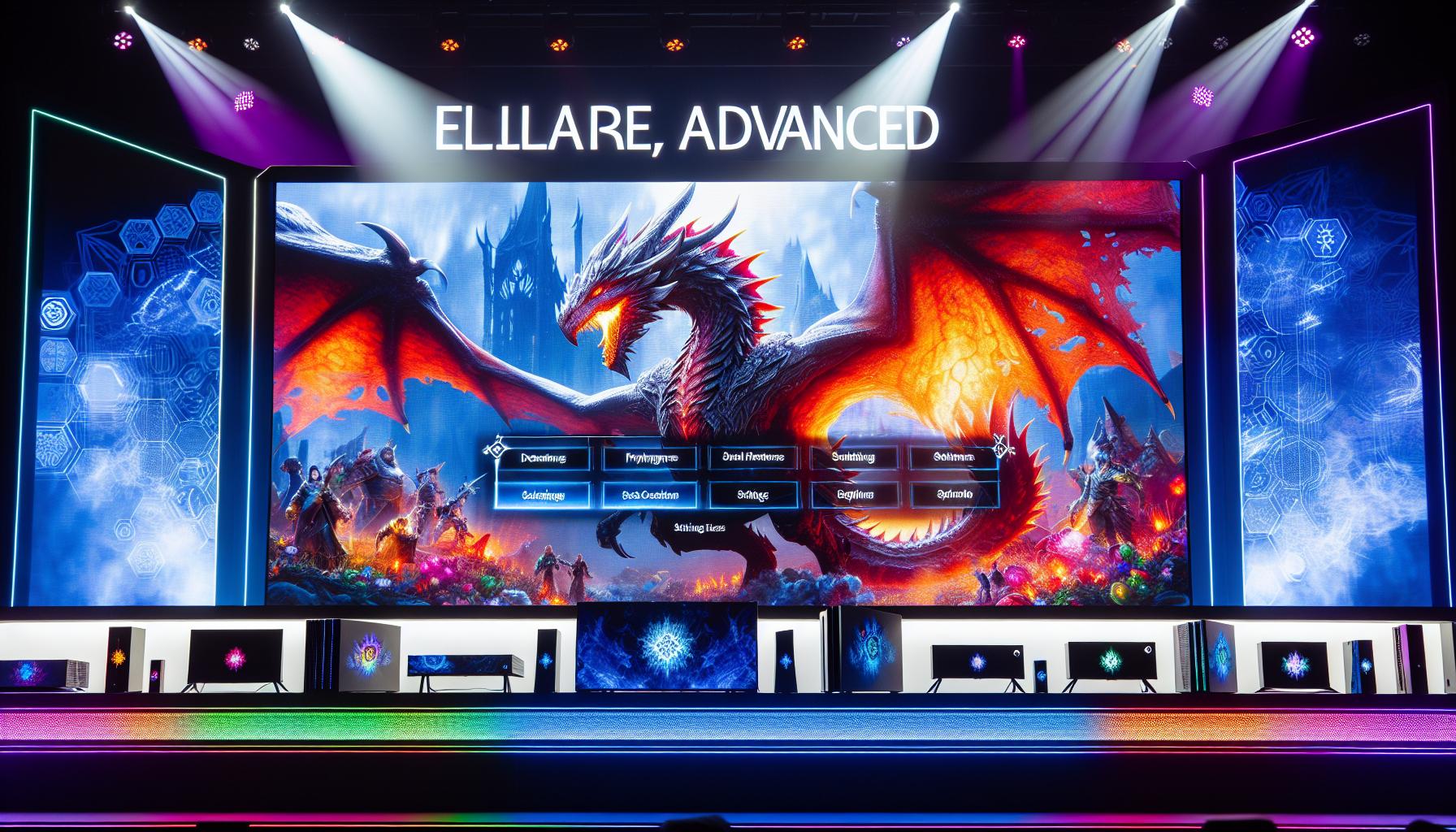Despite the federal government shutdown, certain startups are leveraging Securities and Exchange Commission (SEC) workarounds to file for initial public offerings (IPOs), maintaining momentum in capital markets during uncertain times. !-- wp:paragraph -->
FinOracleAI — Market View
OpenAI’s aggressive stance on removing AI guardrails epitomizes Silicon Valley’s prioritization of rapid innovation, but it also raises significant safety and ethical concerns. The industry faces a critical juncture where balancing technological advancement with responsible governance is paramount. !-- wp:paragraph -->- Opportunities: Accelerated AI capabilities may unlock new markets and efficiencies across industries such as transportation, logistics, and finance.
- Risks: Reduced safety measures increase vulnerability to cyberattacks, regulatory backlash, and potential public harm.
- Market dynamics: Increased venture investments and IPO activity suggest robust investor confidence despite political and regulatory uncertainties.
- Regulatory challenges: Divergent views on AI safety could lead to fragmented policies, complicating compliance for startups and established firms alike.
Impact: The market is currently navigating a complex environment where innovation momentum must be carefully balanced against emerging safety and regulatory considerations to ensure sustainable growth.
Advocacy for AI safety and regulation has become increasingly contentious within Silicon Valley. Companies like Anthropic have encountered backlash for supporting policies such as California’s SB 243, which regulates AI companion chatbots. !-- wp:paragraph --> Simultaneously, startups like Character.AI thrive by navigating these regulatory challenges, demonstrating the complex interplay between innovation, market success, and emerging legal frameworks. !-- wp:paragraph -->IPO Environment Amid Government Shutdown
Despite the federal government shutdown, certain startups are leveraging Securities and Exchange Commission (SEC) workarounds to file for initial public offerings (IPOs), maintaining momentum in capital markets during uncertain times. !-- wp:paragraph -->FinOracleAI — Market View
OpenAI’s aggressive stance on removing AI guardrails epitomizes Silicon Valley’s prioritization of rapid innovation, but it also raises significant safety and ethical concerns. The industry faces a critical juncture where balancing technological advancement with responsible governance is paramount. !-- wp:paragraph -->- Opportunities: Accelerated AI capabilities may unlock new markets and efficiencies across industries such as transportation, logistics, and finance.
- Risks: Reduced safety measures increase vulnerability to cyberattacks, regulatory backlash, and potential public harm.
- Market dynamics: Increased venture investments and IPO activity suggest robust investor confidence despite political and regulatory uncertainties.
- Regulatory challenges: Divergent views on AI safety could lead to fragmented policies, complicating compliance for startups and established firms alike.
Impact: The market is currently navigating a complex environment where innovation momentum must be carefully balanced against emerging safety and regulatory considerations to ensure sustainable growth.
Advocacy for AI safety and regulation has become increasingly contentious within Silicon Valley. Companies like Anthropic have encountered backlash for supporting policies such as California’s SB 243, which regulates AI companion chatbots. !-- wp:paragraph --> Simultaneously, startups like Character.AI thrive by navigating these regulatory challenges, demonstrating the complex interplay between innovation, market success, and emerging legal frameworks. !-- wp:paragraph -->IPO Environment Amid Government Shutdown
Despite the federal government shutdown, certain startups are leveraging Securities and Exchange Commission (SEC) workarounds to file for initial public offerings (IPOs), maintaining momentum in capital markets during uncertain times. !-- wp:paragraph -->FinOracleAI — Market View
OpenAI’s aggressive stance on removing AI guardrails epitomizes Silicon Valley’s prioritization of rapid innovation, but it also raises significant safety and ethical concerns. The industry faces a critical juncture where balancing technological advancement with responsible governance is paramount. !-- wp:paragraph -->- Opportunities: Accelerated AI capabilities may unlock new markets and efficiencies across industries such as transportation, logistics, and finance.
- Risks: Reduced safety measures increase vulnerability to cyberattacks, regulatory backlash, and potential public harm.
- Market dynamics: Increased venture investments and IPO activity suggest robust investor confidence despite political and regulatory uncertainties.
- Regulatory challenges: Divergent views on AI safety could lead to fragmented policies, complicating compliance for startups and established firms alike.
Impact: The market is currently navigating a complex environment where innovation momentum must be carefully balanced against emerging safety and regulatory considerations to ensure sustainable growth.
Wall Street is signaling heightened interest in the tech and AI sectors. Goldman Sachs’ acquisition of Industry Ventures for up to $965 million marks a significant investment in the secondary venture market, reflecting confidence in long-term startup growth and liquidity. !-- wp:paragraph --> Meanwhile, FleetWorks secured $17 million in a Series A funding round to advance AI applications in the trucking industry, aiming to modernize logistics and transportation systems. !-- wp:paragraph -->Regulatory and Political Landscape: AI Safety Advocacy Faces Backlash
Advocacy for AI safety and regulation has become increasingly contentious within Silicon Valley. Companies like Anthropic have encountered backlash for supporting policies such as California’s SB 243, which regulates AI companion chatbots. !-- wp:paragraph --> Simultaneously, startups like Character.AI thrive by navigating these regulatory challenges, demonstrating the complex interplay between innovation, market success, and emerging legal frameworks. !-- wp:paragraph -->IPO Environment Amid Government Shutdown
Despite the federal government shutdown, certain startups are leveraging Securities and Exchange Commission (SEC) workarounds to file for initial public offerings (IPOs), maintaining momentum in capital markets during uncertain times. !-- wp:paragraph -->FinOracleAI — Market View
OpenAI’s aggressive stance on removing AI guardrails epitomizes Silicon Valley’s prioritization of rapid innovation, but it also raises significant safety and ethical concerns. The industry faces a critical juncture where balancing technological advancement with responsible governance is paramount. !-- wp:paragraph -->- Opportunities: Accelerated AI capabilities may unlock new markets and efficiencies across industries such as transportation, logistics, and finance.
- Risks: Reduced safety measures increase vulnerability to cyberattacks, regulatory backlash, and potential public harm.
- Market dynamics: Increased venture investments and IPO activity suggest robust investor confidence despite political and regulatory uncertainties.
- Regulatory challenges: Divergent views on AI safety could lead to fragmented policies, complicating compliance for startups and established firms alike.
Impact: The market is currently navigating a complex environment where innovation momentum must be carefully balanced against emerging safety and regulatory considerations to ensure sustainable growth.
Wall Street is signaling heightened interest in the tech and AI sectors. Goldman Sachs’ acquisition of Industry Ventures for up to $965 million marks a significant investment in the secondary venture market, reflecting confidence in long-term startup growth and liquidity. !-- wp:paragraph --> Meanwhile, FleetWorks secured $17 million in a Series A funding round to advance AI applications in the trucking industry, aiming to modernize logistics and transportation systems. !-- wp:paragraph -->Regulatory and Political Landscape: AI Safety Advocacy Faces Backlash
Advocacy for AI safety and regulation has become increasingly contentious within Silicon Valley. Companies like Anthropic have encountered backlash for supporting policies such as California’s SB 243, which regulates AI companion chatbots. !-- wp:paragraph --> Simultaneously, startups like Character.AI thrive by navigating these regulatory challenges, demonstrating the complex interplay between innovation, market success, and emerging legal frameworks. !-- wp:paragraph -->IPO Environment Amid Government Shutdown
Despite the federal government shutdown, certain startups are leveraging Securities and Exchange Commission (SEC) workarounds to file for initial public offerings (IPOs), maintaining momentum in capital markets during uncertain times. !-- wp:paragraph -->FinOracleAI — Market View
OpenAI’s aggressive stance on removing AI guardrails epitomizes Silicon Valley’s prioritization of rapid innovation, but it also raises significant safety and ethical concerns. The industry faces a critical juncture where balancing technological advancement with responsible governance is paramount. !-- wp:paragraph -->- Opportunities: Accelerated AI capabilities may unlock new markets and efficiencies across industries such as transportation, logistics, and finance.
- Risks: Reduced safety measures increase vulnerability to cyberattacks, regulatory backlash, and potential public harm.
- Market dynamics: Increased venture investments and IPO activity suggest robust investor confidence despite political and regulatory uncertainties.
- Regulatory challenges: Divergent views on AI safety could lead to fragmented policies, complicating compliance for startups and established firms alike.
Impact: The market is currently navigating a complex environment where innovation momentum must be carefully balanced against emerging safety and regulatory considerations to ensure sustainable growth.
The implications of AI extend beyond theoretical concerns. A recent distributed denial-of-service (DDoS) attack disrupted Waymo’s autonomous vehicle services for an entire day near a dead-end street in San Francisco, underscoring vulnerabilities in AI-dependent infrastructure. !-- wp:paragraph --> This incident highlights the tangible risks associated with integrating AI into critical services, emphasizing the need for robust security and contingency planning. !-- wp:paragraph -->Market Moves and Strategic Investments
Wall Street is signaling heightened interest in the tech and AI sectors. Goldman Sachs’ acquisition of Industry Ventures for up to $965 million marks a significant investment in the secondary venture market, reflecting confidence in long-term startup growth and liquidity. !-- wp:paragraph --> Meanwhile, FleetWorks secured $17 million in a Series A funding round to advance AI applications in the trucking industry, aiming to modernize logistics and transportation systems. !-- wp:paragraph -->Regulatory and Political Landscape: AI Safety Advocacy Faces Backlash
Advocacy for AI safety and regulation has become increasingly contentious within Silicon Valley. Companies like Anthropic have encountered backlash for supporting policies such as California’s SB 243, which regulates AI companion chatbots. !-- wp:paragraph --> Simultaneously, startups like Character.AI thrive by navigating these regulatory challenges, demonstrating the complex interplay between innovation, market success, and emerging legal frameworks. !-- wp:paragraph -->IPO Environment Amid Government Shutdown
Despite the federal government shutdown, certain startups are leveraging Securities and Exchange Commission (SEC) workarounds to file for initial public offerings (IPOs), maintaining momentum in capital markets during uncertain times. !-- wp:paragraph -->FinOracleAI — Market View
OpenAI’s aggressive stance on removing AI guardrails epitomizes Silicon Valley’s prioritization of rapid innovation, but it also raises significant safety and ethical concerns. The industry faces a critical juncture where balancing technological advancement with responsible governance is paramount. !-- wp:paragraph -->- Opportunities: Accelerated AI capabilities may unlock new markets and efficiencies across industries such as transportation, logistics, and finance.
- Risks: Reduced safety measures increase vulnerability to cyberattacks, regulatory backlash, and potential public harm.
- Market dynamics: Increased venture investments and IPO activity suggest robust investor confidence despite political and regulatory uncertainties.
- Regulatory challenges: Divergent views on AI safety could lead to fragmented policies, complicating compliance for startups and established firms alike.
Impact: The market is currently navigating a complex environment where innovation momentum must be carefully balanced against emerging safety and regulatory considerations to ensure sustainable growth.
The implications of AI extend beyond theoretical concerns. A recent distributed denial-of-service (DDoS) attack disrupted Waymo’s autonomous vehicle services for an entire day near a dead-end street in San Francisco, underscoring vulnerabilities in AI-dependent infrastructure. !-- wp:paragraph --> This incident highlights the tangible risks associated with integrating AI into critical services, emphasizing the need for robust security and contingency planning. !-- wp:paragraph -->Market Moves and Strategic Investments
Wall Street is signaling heightened interest in the tech and AI sectors. Goldman Sachs’ acquisition of Industry Ventures for up to $965 million marks a significant investment in the secondary venture market, reflecting confidence in long-term startup growth and liquidity. !-- wp:paragraph --> Meanwhile, FleetWorks secured $17 million in a Series A funding round to advance AI applications in the trucking industry, aiming to modernize logistics and transportation systems. !-- wp:paragraph -->Regulatory and Political Landscape: AI Safety Advocacy Faces Backlash
Advocacy for AI safety and regulation has become increasingly contentious within Silicon Valley. Companies like Anthropic have encountered backlash for supporting policies such as California’s SB 243, which regulates AI companion chatbots. !-- wp:paragraph --> Simultaneously, startups like Character.AI thrive by navigating these regulatory challenges, demonstrating the complex interplay between innovation, market success, and emerging legal frameworks. !-- wp:paragraph -->IPO Environment Amid Government Shutdown
Despite the federal government shutdown, certain startups are leveraging Securities and Exchange Commission (SEC) workarounds to file for initial public offerings (IPOs), maintaining momentum in capital markets during uncertain times. !-- wp:paragraph -->FinOracleAI — Market View
OpenAI’s aggressive stance on removing AI guardrails epitomizes Silicon Valley’s prioritization of rapid innovation, but it also raises significant safety and ethical concerns. The industry faces a critical juncture where balancing technological advancement with responsible governance is paramount. !-- wp:paragraph -->- Opportunities: Accelerated AI capabilities may unlock new markets and efficiencies across industries such as transportation, logistics, and finance.
- Risks: Reduced safety measures increase vulnerability to cyberattacks, regulatory backlash, and potential public harm.
- Market dynamics: Increased venture investments and IPO activity suggest robust investor confidence despite political and regulatory uncertainties.
- Regulatory challenges: Divergent views on AI safety could lead to fragmented policies, complicating compliance for startups and established firms alike.
Impact: The market is currently navigating a complex environment where innovation momentum must be carefully balanced against emerging safety and regulatory considerations to ensure sustainable growth.
Silicon Valley is witnessing a profound tension between rapid AI innovation and the imperative for responsible development. OpenAI’s recent decision to remove key guardrails from its AI models exemplifies this trend, signaling a shift toward prioritizing unrestrained technological advancement over cautious oversight. !-- wp:paragraph --> This move has sparked critical discussions across the tech landscape, especially as venture capitalists increasingly criticize companies like Anthropic for advocating AI safety regulations. The debate raises pressing questions about who should shape the future of AI and how to balance innovation with ethical considerations. !-- wp:paragraph -->Real-World AI Impacts: From Digital Disruptions to Physical Consequences
The implications of AI extend beyond theoretical concerns. A recent distributed denial-of-service (DDoS) attack disrupted Waymo’s autonomous vehicle services for an entire day near a dead-end street in San Francisco, underscoring vulnerabilities in AI-dependent infrastructure. !-- wp:paragraph --> This incident highlights the tangible risks associated with integrating AI into critical services, emphasizing the need for robust security and contingency planning. !-- wp:paragraph -->Market Moves and Strategic Investments
Wall Street is signaling heightened interest in the tech and AI sectors. Goldman Sachs’ acquisition of Industry Ventures for up to $965 million marks a significant investment in the secondary venture market, reflecting confidence in long-term startup growth and liquidity. !-- wp:paragraph --> Meanwhile, FleetWorks secured $17 million in a Series A funding round to advance AI applications in the trucking industry, aiming to modernize logistics and transportation systems. !-- wp:paragraph -->Regulatory and Political Landscape: AI Safety Advocacy Faces Backlash
Advocacy for AI safety and regulation has become increasingly contentious within Silicon Valley. Companies like Anthropic have encountered backlash for supporting policies such as California’s SB 243, which regulates AI companion chatbots. !-- wp:paragraph --> Simultaneously, startups like Character.AI thrive by navigating these regulatory challenges, demonstrating the complex interplay between innovation, market success, and emerging legal frameworks. !-- wp:paragraph -->IPO Environment Amid Government Shutdown
Despite the federal government shutdown, certain startups are leveraging Securities and Exchange Commission (SEC) workarounds to file for initial public offerings (IPOs), maintaining momentum in capital markets during uncertain times. !-- wp:paragraph -->FinOracleAI — Market View
OpenAI’s aggressive stance on removing AI guardrails epitomizes Silicon Valley’s prioritization of rapid innovation, but it also raises significant safety and ethical concerns. The industry faces a critical juncture where balancing technological advancement with responsible governance is paramount. !-- wp:paragraph -->- Opportunities: Accelerated AI capabilities may unlock new markets and efficiencies across industries such as transportation, logistics, and finance.
- Risks: Reduced safety measures increase vulnerability to cyberattacks, regulatory backlash, and potential public harm.
- Market dynamics: Increased venture investments and IPO activity suggest robust investor confidence despite political and regulatory uncertainties.
- Regulatory challenges: Divergent views on AI safety could lead to fragmented policies, complicating compliance for startups and established firms alike.
Impact: The market is currently navigating a complex environment where innovation momentum must be carefully balanced against emerging safety and regulatory considerations to ensure sustainable growth.
Silicon Valley is witnessing a profound tension between rapid AI innovation and the imperative for responsible development. OpenAI’s recent decision to remove key guardrails from its AI models exemplifies this trend, signaling a shift toward prioritizing unrestrained technological advancement over cautious oversight. !-- wp:paragraph --> This move has sparked critical discussions across the tech landscape, especially as venture capitalists increasingly criticize companies like Anthropic for advocating AI safety regulations. The debate raises pressing questions about who should shape the future of AI and how to balance innovation with ethical considerations. !-- wp:paragraph -->Real-World AI Impacts: From Digital Disruptions to Physical Consequences
The implications of AI extend beyond theoretical concerns. A recent distributed denial-of-service (DDoS) attack disrupted Waymo’s autonomous vehicle services for an entire day near a dead-end street in San Francisco, underscoring vulnerabilities in AI-dependent infrastructure. !-- wp:paragraph --> This incident highlights the tangible risks associated with integrating AI into critical services, emphasizing the need for robust security and contingency planning. !-- wp:paragraph -->Market Moves and Strategic Investments
Wall Street is signaling heightened interest in the tech and AI sectors. Goldman Sachs’ acquisition of Industry Ventures for up to $965 million marks a significant investment in the secondary venture market, reflecting confidence in long-term startup growth and liquidity. !-- wp:paragraph --> Meanwhile, FleetWorks secured $17 million in a Series A funding round to advance AI applications in the trucking industry, aiming to modernize logistics and transportation systems. !-- wp:paragraph -->Regulatory and Political Landscape: AI Safety Advocacy Faces Backlash
Advocacy for AI safety and regulation has become increasingly contentious within Silicon Valley. Companies like Anthropic have encountered backlash for supporting policies such as California’s SB 243, which regulates AI companion chatbots. !-- wp:paragraph --> Simultaneously, startups like Character.AI thrive by navigating these regulatory challenges, demonstrating the complex interplay between innovation, market success, and emerging legal frameworks. !-- wp:paragraph -->IPO Environment Amid Government Shutdown
Despite the federal government shutdown, certain startups are leveraging Securities and Exchange Commission (SEC) workarounds to file for initial public offerings (IPOs), maintaining momentum in capital markets during uncertain times. !-- wp:paragraph -->FinOracleAI — Market View
OpenAI’s aggressive stance on removing AI guardrails epitomizes Silicon Valley’s prioritization of rapid innovation, but it also raises significant safety and ethical concerns. The industry faces a critical juncture where balancing technological advancement with responsible governance is paramount. !-- wp:paragraph -->- Opportunities: Accelerated AI capabilities may unlock new markets and efficiencies across industries such as transportation, logistics, and finance.
- Risks: Reduced safety measures increase vulnerability to cyberattacks, regulatory backlash, and potential public harm.
- Market dynamics: Increased venture investments and IPO activity suggest robust investor confidence despite political and regulatory uncertainties.
- Regulatory challenges: Divergent views on AI safety could lead to fragmented policies, complicating compliance for startups and established firms alike.
Impact: The market is currently navigating a complex environment where innovation momentum must be carefully balanced against emerging safety and regulatory considerations to ensure sustainable growth.
AI Innovation vs. Safety: Silicon Valley’s Growing Divide
Silicon Valley is witnessing a profound tension between rapid AI innovation and the imperative for responsible development. OpenAI’s recent decision to remove key guardrails from its AI models exemplifies this trend, signaling a shift toward prioritizing unrestrained technological advancement over cautious oversight. !-- wp:paragraph --> This move has sparked critical discussions across the tech landscape, especially as venture capitalists increasingly criticize companies like Anthropic for advocating AI safety regulations. The debate raises pressing questions about who should shape the future of AI and how to balance innovation with ethical considerations. !-- wp:paragraph -->Real-World AI Impacts: From Digital Disruptions to Physical Consequences
The implications of AI extend beyond theoretical concerns. A recent distributed denial-of-service (DDoS) attack disrupted Waymo’s autonomous vehicle services for an entire day near a dead-end street in San Francisco, underscoring vulnerabilities in AI-dependent infrastructure. !-- wp:paragraph --> This incident highlights the tangible risks associated with integrating AI into critical services, emphasizing the need for robust security and contingency planning. !-- wp:paragraph -->Market Moves and Strategic Investments
Wall Street is signaling heightened interest in the tech and AI sectors. Goldman Sachs’ acquisition of Industry Ventures for up to $965 million marks a significant investment in the secondary venture market, reflecting confidence in long-term startup growth and liquidity. !-- wp:paragraph --> Meanwhile, FleetWorks secured $17 million in a Series A funding round to advance AI applications in the trucking industry, aiming to modernize logistics and transportation systems. !-- wp:paragraph -->Regulatory and Political Landscape: AI Safety Advocacy Faces Backlash
Advocacy for AI safety and regulation has become increasingly contentious within Silicon Valley. Companies like Anthropic have encountered backlash for supporting policies such as California’s SB 243, which regulates AI companion chatbots. !-- wp:paragraph --> Simultaneously, startups like Character.AI thrive by navigating these regulatory challenges, demonstrating the complex interplay between innovation, market success, and emerging legal frameworks. !-- wp:paragraph -->IPO Environment Amid Government Shutdown
Despite the federal government shutdown, certain startups are leveraging Securities and Exchange Commission (SEC) workarounds to file for initial public offerings (IPOs), maintaining momentum in capital markets during uncertain times. !-- wp:paragraph -->FinOracleAI — Market View
OpenAI’s aggressive stance on removing AI guardrails epitomizes Silicon Valley’s prioritization of rapid innovation, but it also raises significant safety and ethical concerns. The industry faces a critical juncture where balancing technological advancement with responsible governance is paramount. !-- wp:paragraph -->- Opportunities: Accelerated AI capabilities may unlock new markets and efficiencies across industries such as transportation, logistics, and finance.
- Risks: Reduced safety measures increase vulnerability to cyberattacks, regulatory backlash, and potential public harm.
- Market dynamics: Increased venture investments and IPO activity suggest robust investor confidence despite political and regulatory uncertainties.
- Regulatory challenges: Divergent views on AI safety could lead to fragmented policies, complicating compliance for startups and established firms alike.
Impact: The market is currently navigating a complex environment where innovation momentum must be carefully balanced against emerging safety and regulatory considerations to ensure sustainable growth.













